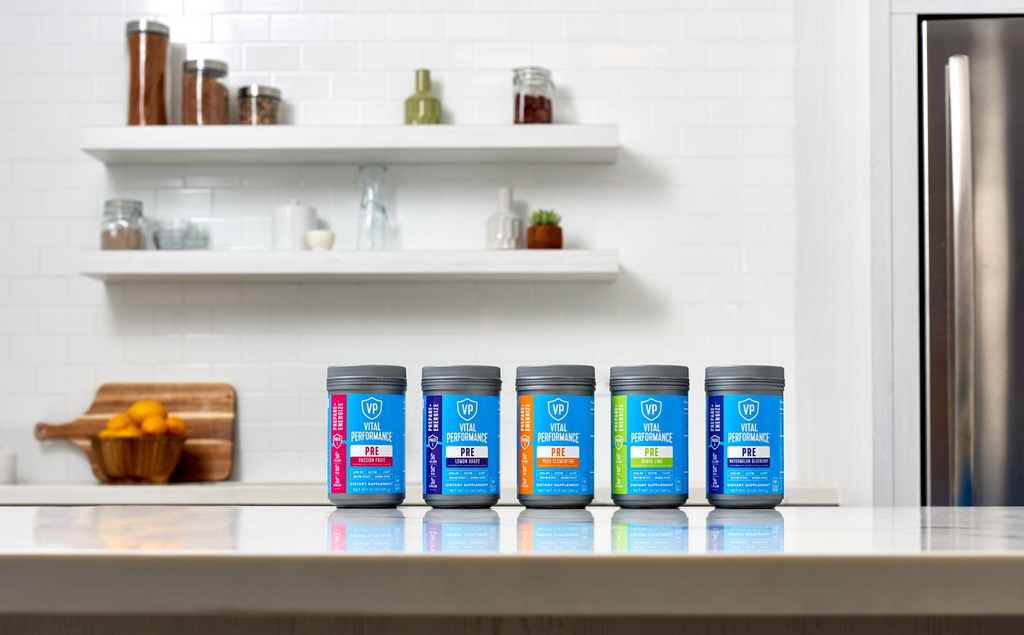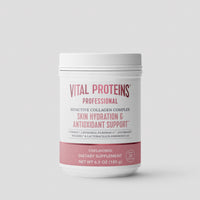If you can’t fathom working out without drinking a cup of coffee beforehand, you may be interested in learning about pre-workout supplements, which can quickly wake up your mind and body before hitting the gym. These supplements typically come in powdered form, which you can mix into water or a smoothie about 20-30 minutes before you workout.
The exact ingredients and quantities of each will vary by brand, but “common pre-workouts often contain caffeine, creatine, BCAA, sweeteners and other substances,” Amanda Kostro Miller, RD, LDN, who serves on the advisory board for Fitter Living, tells Lively. These other substances may include vitamins, carbohydrates, electrolytes and other muscle-building ingredients. But, if one of your goals for working out is to lose weight, you may be wondering if pre-workout can help you lose weight, or if on the flip side, they actually cause weight gain. Read on to find out.

Does pre-workout help you lose weight?
Weight loss is a basic ratio of calories in and calories burned, and we know by now that there’s no magic pill that will make you immediately shed pounds. “Pre-workouts exclusively do not help lose weight,” online fitness coach, Leighanne Stephens, tells Lively. “However, being stimulated with caffeine [could] help you do more activity and therefore burn more calories which is conducive to a weight loss goal,” she adds.
You may feel less hungry throughout the day, because according to some research, caffeine can temporarily act as an appetite-suppressant. On the flip side, “caffeine is dehydrating, so you’re at risk of dehydrating yourself during your workout,” Kostro says. Sometimes people eat more because they register their thirst as hunger, so make sure to drink lots of water when taking pre-workout.
Can Pre-Workout Cause Weight Gain?
Just as pre-workout won’t alone cause weight loss, it probably won’tcause weight gain either. However, if weight loss is your goal as opposed to muscle gain, skip the creatine, “Pre-workouts will only cause weight gain if they contain creatine, which many do,” Jamie Hickey, nutritionist and Founder of Truism Fitness tells Lively. “Creatine is one of the most effective supplements you can take but it does draw water into your muscles causing you to gain on average 2-6 lbs. of water weight.”**
It may sound counterintuitive, but if pre-workout is making you work out harder and for longer than you normally would, you may be inclined to eat more to make up for the energy deficit, which can cause weight gain. “If the stimulation from the pre-workout leads to a dramatic increase in daily activity and energy expenditure then you may feel like you are hungrier as your body burns and requires more calories in a day,” says Stephens.**
Is Pre-Workout Bad For You?
Pre-workout is essentially a stimulant not so unlike coffee or any other energy drink. Always heed the serving size on the label, and adjust if you feel jittery or otherwise off. “Too much of it can create jitters and an inability to focus in the short term,” says Stephens. Also, as Kostro notes, almost all pre-workout supplements will contain caffeine, so it’s important to keep the rest of your daily intake in check so you don’t go overboard. Basically, don’t have a pre-workout drink, then wash it down with a cold brew. “If you’re consuming caffeine in a pre-workout supplement and additional caffeine throughout the day, all that can add up. It’s recommended to keep caffeine to less than 400mg per day.” For reference, one espresso shot has about around 64mg of caffeine, whereas a tall size (that’s the small one) of dark roast coffee can have 193mmg of caffeine.
Stephens adds that overtime, continued use of the pre-workout can increase your tolerance of the stimulant, meaning you’ll need more to feel its effects.

Do Men And Women Need Different Pre-Workout Supplements?
The short answer to this question is that no, men and women don’t necessarily need different pre-workout supplements. The type of pre-workout supplement you opt for is more dependent on your fitness goals than your sex. If your goal is to put on significant muscle, you’ll want to look for a supplement that contains creatine. If you want to decrease soreness and build lean muscle, then you may want to shop around for a pre-workout that contains BCAA. If your primary goal is weight loss, make sure your supplement does not contain sugar or many carbs, and you may want to avoid creatine. If you’re sensitive to caffeine, look for a low dose or half your dose. “If you are just starting out with pre-workout you may want to go for a lower stimulant content per serving. If you are quite tolerant of doses of stimulant then you may want to get a higher content per serving,” advises Stephens.
Vital note: This article has been made available for informational and educational purposes only. It is not intended to be a substitute for professional medical advice, diagnosis, or treatment. Always seek the advice of your physician or another qualified health provider with any questions you may have regarding a medical condition. Your licensed healthcare professional can best provide you with the diagnosis and treatment of any medical condition and assist you as well in deciding whether a dietary supplement will be a helpful addition to your regimen.













